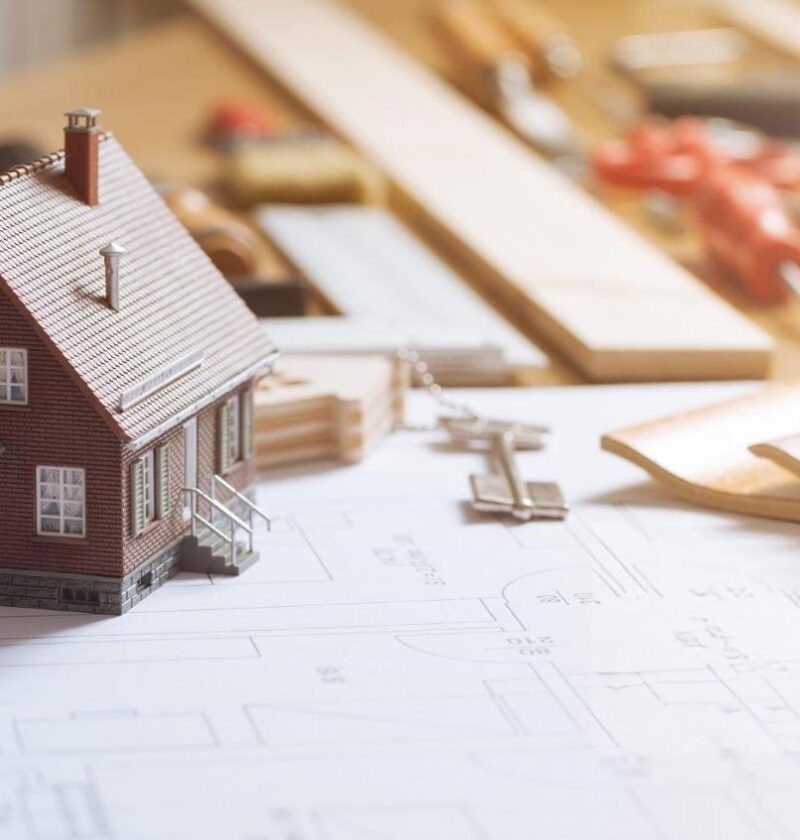Home renovation is an exciting yet challenging endeavor that can transform living spaces and increase property value. Planning a home renovation requires careful thought and preparation to ensure successful outcomes. Useful tips for planning home renovation, like in this article, can make the process smoother and more enjoyable for homeowners embarking on this journey.
Assess Your Renovation Goals and Budget
Assessing renovation goals and budget is a crucial step in planning a home renovation. This process helps homeowners stay focused and avoid unnecessary expenses. To begin, it’s essential to define specific objectives for the project.
Define your renovation objectives
When planning a home renovation, it’s important to outline clear goals. Common objectives include adding space, repurposing existing rooms, creating new rooms, updating for style and energy efficiency, or enhancing outdoor living areas. Homeowners should consider their current and future needs, such as accommodating growing families or pursuing new interests.
By establishing S.M.A.R.T. goals (Specific, Measurable, Achievable, Relevant, and Time-bound), individuals can prioritize their plans and manage their time effectively.
Evaluate your financial resources
After defining objectives, the next step is to evaluate financial resources and establish a realistic budget. Homeowners should consider how much they can comfortably afford to spend on the renovation. A good rule of thumb is to avoid spending more than 10 to 15 percent of the home’s value on a single room. It’s also wise to set aside 10 to 20 percent of the available funds for unexpected expenses.
Consider return on investment
When planning a home renovation, it’s important to consider the potential return on investment (ROI). Some projects, such as garage door replacements, manufactured stone veneers, and minor kitchen remodels, typically offer higher ROI.
However, it’s crucial to remember that the ROI of any renovation project depends on various factors, including local market characteristics and the quality of work performed. Homeowners should research average ROI values for different projects and consider how the improvements align with their long-term goals for the property.
Create a Detailed Renovation Plan
Creating a detailed renovation plan is a crucial step in ensuring a successful home improvement project. To begin, homeowners should prioritize their renovation projects based on their needs and wants. This involves making a list of all desired improvements and categorizing them as essential or optional.
By focusing on addressing needs first, such as safety-related repairs or upgrades, homeowners can ensure their project has a solid foundation.
Prioritize renovation projects
When prioritizing projects, it’s important to consider the return on investment (ROI) of each improvement. Some renovations, like kitchen and bathroom remodels, typically offer higher ROI and can add significant value to a home. Homeowners should research average ROI values for different projects and align them with their long-term goals for the property.
Develop a realistic timeline
Developing a realistic timeline is essential for planning a home renovation. Start by choosing a desired start date and work backward from there. Consult with contractors to determine how long each portion of the project will take and discuss which steps need to be completed first.
It’s crucial to account for potential delays, such as holidays, material delivery times, and unexpected issues. Including a few days of wiggle room for each step can help keep the project on track.
Research local building codes and permits
Before beginning any renovation work, it’s vital to research local building codes and obtain necessary permits. Many projects, especially those involving structural changes or major systems like plumbing and electrical, require approval from local authorities.
Homeowners should check with their municipal office to determine which permits are needed for their specific project. Failing to obtain proper permits can result in fines, work stoppages, or complications when selling the home in the future.
Choose the Right Professionals
Selecting the right professionals is a crucial step in planning a home renovation. Homeowners should take the time to interview multiple contractors, check references and credentials, and understand contract terms before making a decision. This process helps ensure the success of the renovation project and protects the homeowner’s investment.
Interview multiple contractors
When interviewing contractors, homeowners should ask specific questions about their experience, background, and approach to projects. It’s important to inquire about their expertise in similar renovation projects and their ability to handle the scope of work.
Asking about their schedule, estimated timeline for completion, and communication preferences can provide valuable insights into their work style and organization.
Check references and credentials
Verifying a contractor’s credentials is essential for a successful home renovation. Homeowners should ask for proof of licensing and insurance, as well as a list of past client referrals. Contacting these references and asking detailed questions about their experiences can offer valuable information about the contractor’s work quality, reliability, and professionalism.
Additionally, researching the contractor’s online presence, including reviews and ratings on reputable platforms, can provide further insights.
Understand contract terms
Before signing, homeowners must review contract terms, including payment schedules, warranties, and dispute resolution. Ensure it clearly outlines the work, materials, and timeline. Verify that the contractor will secure permits and follow local codes.
Prepare Your Home for Renovation
Preparing your home for renovation is a crucial step in ensuring a smooth and efficient process. By decluttering, organizing, and protecting your belongings, you can create a safe and manageable environment for the renovation work to take place. Here are some useful tips for planning home renovation and preparing your space effectively.
Declutter and organize your space
Before the renovation begins, it’s essential to declutter and organize your home. Start by systematically going through each room, sorting items into categories such as keep, donate, or discard. This process not only creates more space for the renovation work but also helps you reassess your belongings and make decisions about what you truly need in your newly renovated space.
Consider using clear plastic storage containers with wheels for items you’ll need to access during the renovation. Label these containers clearly and store them in a designated area away from the construction zone. For less frequently used items, pack them in cardboard boxes and label them with their contents for easy retrieval later.
Protect valuables and furniture
Safeguarding your valuables and furniture is paramount during a renovation. For smaller valuable items like jewelry and important documents, consider using a portable safe or storing them in a secure location outside the home. For larger items, such as furniture, use heavy-duty plastic sheeting or furniture pads to protect them from dust and debris.
If possible, move furniture to rooms that won’t be affected by the renovation. For items that can’t be moved, consider using mobile storage solutions or renting a storage unit to keep them safe during the construction process.
Plan for living arrangements during renovation
Planning your living arrangements during the renovation is crucial for maintaining your daily routines and minimizing stress. If you’re renovating a kitchen, set up a temporary cooking area in another part of the house with essential appliances like a microwave and electric hot plate.
For bathroom renovations, discuss with your contractor the timeline for when facilities will be unavailable and make alternative arrangements if necessary.
Consider the impact of the renovation on your family’s daily life, including children and pets. You may need to create designated safe areas or even arrange for temporary accommodation during certain phases of the project. By planning ahead and preparing your home thoroughly, you can ensure a more organized and less stressful renovation experience.
A well-planned home renovation not only enhances living spaces but also adds value to the property. By following these useful tips for planning home renovation, homeowners can navigate the process with confidence, minimizing stress and maximizing results. Remember, thorough planning and preparation are key to turning your renovation dreams into reality.
FAQs
In what order should you renovate a house?
Begin by addressing structural issues, such as roofing and foundation repairs. Next, focus on electrical, plumbing, and insulation updates. Then, move to drywall, painting, and flooring before finishing with fixtures, cabinetry, and final touches.
How to plan for renovation of house?
Start by setting clear goals and a realistic budget, including a contingency for unexpected costs. Research and hire reputable contractors, obtain necessary permits, and create a detailed timeline. Break down the renovation into phases to manage the process efficiently.
Is $100,000 enough to renovate a house?
Yes, $100,000 can be sufficient for renovations, depending on the scope and size of the project. Prioritize essential upgrades and allocate the budget carefully to get the best value. Costs vary greatly by region, material choices, and specific renovations.
How to organize home renovation ideas?
Organize ideas by creating a detailed list or vision board for each room, highlighting desired changes, styles, and materials. Use apps or design software to visualize the layout and mood. Prioritize projects based on budget, needs, and time, ensuring a clear plan.







